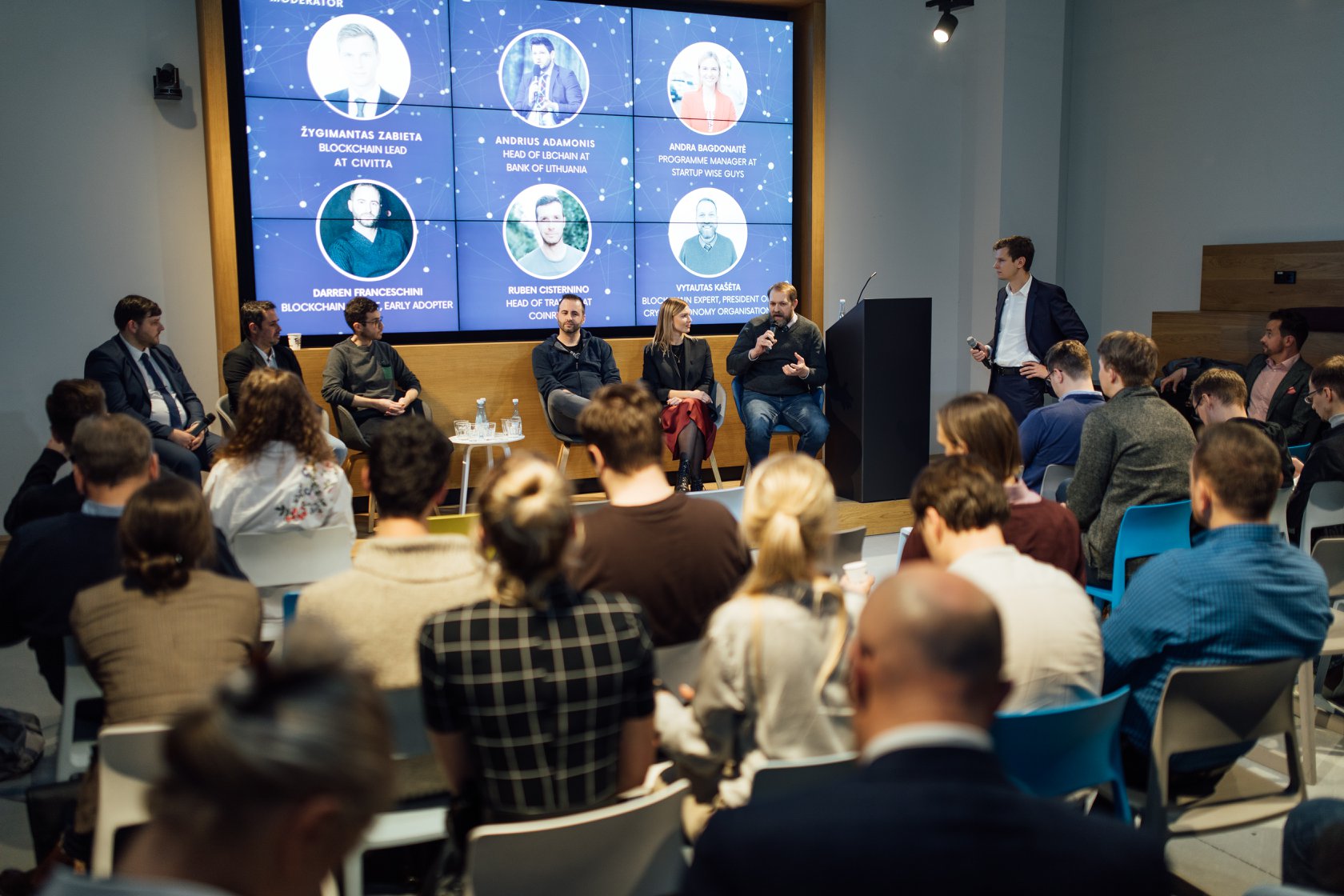IT, finance, wholesale and retail sectors are the most receptive to blockchain technology. The technology, that has been in the radar for some time now, combines the advantages of decentralized databases and cryptography. The mentioned sectors offer the least barriers to technological adoption as well as relatively minor regulatory challenges. This was demonstrated by a study carried out by the EU Horizon 2020-funded project BlockStart, which included a quantitative data analysis verified by interviews with twenty European blockchain technology experts.
However, is the blockchain really the solution to all business problems? If you are a startup, how do you know if it is worth using this technology? Answers to these questions were sought at a panel discussion with industry experts during the Blockchain Relaunch in Lithuania event.
The largest potential is in the financial sector
The study identified the three most mature sectors for blockchain technology – finance, trade and IT. “In retail, this technology will help track the origin of the product, reduce insurance costs, resolve mistrust in the supply chain, and bring highly needed transparency to the financial sector,” says Žygimantas Zabieta, senior innovation consultant at the international management consulting firm, Civitta.
The panel agreed that in the financial sector, blockchain technology can be particularly successful, which would not only ensure more transparency, cheaper and faster financial transactions, but also reduce the risk of corruption. Meanwhile, the cryptocurrency economy is likely to be viewed more cautiously.
“In Lithuania and the Nordic countries, we trust our central banks. However, in countries where confidence in the central bank is not high, the cryptocurrency economy can become an important solution. Try making a money transfer from Egypt to Venezuela. It will likely be impossible to do through a regular bank,” says Ž. Zabieta.
Blockchain is not suitable for everyone
“Blockchain technology is not the answer to all problems,” says Bruno Maia, Global Pre-sales Director at The Bitfury Group. According to the representative of the billion-dollar company, like other advanced technologies, blockchain has specific functions and limited applicability in different industries. It is possible to assess the applicability of blockchain technology within the business in many ways. One of the options is 1) DLT assessment tool available on BlockStart webpage, and 2) via special training organised by the B-hub for Europe project.
“The answer to whether your company needs blockchain will probably be ‘no’ – we have to understand that this is not a vaccine for all business, especially startup, diseases,” says Ž. Zabieta.
Startups eligible for support to develop blockchain solutions
The European Union is paying increasing attention to the development of blockchain technology and how it can be used to streamline operations, automate processes and reduce costs. Mariya Gabriel, European Commissioner for Digital Economy and Society, says that blockchain technology is an innovation that Europe cannot afford to overlook.
This year the European Commission plans to allocate more than 100 million EUR to support startups working with AI and blockchain technologies. Programs such as B-HUB for Europe, Block.IS and BlockStart, implemented by Startup Division and Civitta Lithuania, helps businesses figure out how to effectively implement blockchain technology in their processes and for startups it provides financial support and acceleration services.
B – HUB for Europe invites representatives from public and private sector companies to trainings that would help identify the need for blockchain solutions. For tech companies and startups the project will provide free acceleration support and will matchmake them with the clients.
Block.IS a new acceleration programme that aims to build an open and collaborative cross-border, cross-sectoral innovation ecosystem that fosters the use of blockchain technology in three vital sectors for the European economy: agrifood, logistics and finance. Businesses can receive up to €60,000 support per company as well as free tailored acceleration and business support.
BlockStart is aimed at SMEs that are addressing business problems with blockchain solution developers. Companies can receive up to €20,000 equity free funding, business acceleration services and matchmaking with select solution adopters.
Sandboxes for business are already in Lithuania
With the growth of the fintech sector, business support initiatives and acceleration programs are rapidly developing in Lithuania. The acceleration programs connect startups with mentors and investors who help them develop the most appropriate business development strategy and choose the most appropriate technology. For instance, the LBChain initiative implemented by the Bank of Lithuania allows newly established blockchain businesses to experiment with innovations. According to Andrius Adamonis, the head of LBChain, in this way the benefits of implementing blockchain technology can be tested in a regulatory sandbox allowing companies to receive consultations as well as technological support provided by market experts.
Andra Bagdonaitė, Program Manager at Startup Wise Guys Acceleration Program, notes that when considering a business for investment, many investors, including accelerators, primarily look at the problem the company is trying to address with the help of technology, including blockchain. “However, it is important to remember that the team, and not the technology used, is the main element for a company’s success,” says A. Bagdonaitė.
